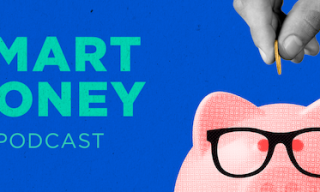Welcome to NerdWallet’s Smart Money podcast, where we answer your real-world money questions — in 15 minutes or less.
This week’s question is from Henry. He says, "I'm wondering how to best save for a down payment on a house. I just got my first job and after contributing to my 401(k) and Roth, I have enough money to start saving for a down payment. I have decided to live with my parents for the next two years and they have generously agreed not to charge me rent, so I can save for a house. As a result, I don't necessarily need to access the majority of the money I'm saving for the two years. I'm wondering how to best maximize this money. Should I put some of it into a CD for two years or would it be better put into a high-yield savings account? There doesn't seem to be too much difference in APY at the moment. I just want to make my money stretch as far as possible."
Our take
Henry can’t afford to take much risk because he’ll need the money within two years. A high-yield savings account from an online bank is probably the easiest option to get some return while keeping the money FDIC insured. Certificates of deposit are similar, but Henry would want to make sure the CDs all come due at the same time (in two years), even though he’s buying them at different times as he saves. A third option to consider is cash management accounts, which are a higher-yield option offered by some brokerages.
Since Henry’s a first-time home buyer, we also have some advice for figuring out how much house he can afford and how much of a down payment he needs. The old rule of thumb says you can pay 2½ to 3 times your income, but that doesn’t take into account any of your other obligations, such as student loan payments, says Holden Lewis, NerdWallet’s authority on mortgages and real estate. NerdWallet’s home affordability calculator can help Henry see what’s a reasonable amount for him to pay for a home, what’s a stretch and what’s truly aggressive.
How much cash you contribute to the deal also helps determine what you can afford, but the days when you had to cough up a 20% down payment are long gone. Most first-time homebuyers put down 5% or less, Lewis says.
That means you have to pay mortgage insurance. So the next decision will be whether to get a conventional mortgage, with private mortgage insurance, or a Federal Housing Administration loan. If Henry’s credit scores are below 720, an FHA loan is best, Lewis says, and the minimum down payment is 3.5%. With scores of 720 or above, private mortgage insurance will be cheaper than the FHA loan. There are some first-time home buyer loan programs that allow down payments as small as 3% with private mortgage insurance, Holden says.
Our tips
Set your goal. Determine how much money you're saving and how long you have to save it. Use NerdWallet’s home affordability calculator to help you figure out how much house you can buy and what kind of down payment you're going to commit.
Do what it takes. If you need to live with your parents for a while to meet your financial goal, whether it's paying off debt or saving up for a house, don't let any shame or social stigma get in the way.
Shop around for the best accounts. Traditional banks offer a fraction of what you could earn with a high-yield savings account from an online bank or a certificate of deposit. A cash management account, offered by some brokerages, could be a good option as well for earning more interest.





